Good News for Banks: Congress Makes Way for Reciprocal Deposits.
Glenn Martin, Regional Director
Promontory Interfinancial Network, LLC
Arlington, VA
A lesser-known provision of a new law just changed the market for deposits, and it could not have come at a better time for banks, especially community banks. The provision, which is part of the regulatory relief package for banks just signed by President Trump, provides that most reciprocal deposits are no longer treated as brokered. As a result, well-capitalized banks can now attract more large-dollar, local relationships and, in turn, have more cost-effective funding on hand to finance lending in their communities.
In recent months, U.S. banks have been bracing for increased competition for customer deposits. According to the Bank Executive Business Outlook Survey (2018, Q1) a record number of bank respondents (76 percent) reported facing more competition for deposits over the past year and almost 90 percent believe it is only going to get tougher.[1]

Source: Bank Executive Business Outlook Survey 1st Quarter, 2018
In fact, the combination of rate hikes (more are expected later this year) and the Federal Reserve’s $1.5 trillion reduction of its balance sheet should continue to push deposit costs upward. With the Fed not reinvesting the principal proceeds from maturing securities, liquidity will be pulled from the markets and banking system, reversing the impact of the first and second Quantitative Easing. And banks are bracing themselves for more competition from the nation’s largest banks, as well as from non-traditional players that include the likes of fintech companies, Goldman Sachs’s Marcus, and the potential entry of Amazon.
Reciprocal Deposits
Fortunately, the enactment of the Economic Growth, Regulatory Relief, and Consumer Protection Act should offer banks some relief. This important new law provides that most reciprocal deposits are no longer considered brokered deposits.
Reciprocal deposits are deposits that a bank receives through a deposit placement network in return for placing a matching amount of deposits at other network banks. Although there are a number of providers, the leading reciprocal deposit placement network in the United States is operated by Promontory Interfinancial Network, LLC, which invented reciprocal deposits and offers two of the nation’s largest reciprocal deposit placement services: Insured Cash Sweep®, or ICS®, and CDARS®.
The Economic Growth, Regulatory Relief, and Consumer Protection Act
This new law recognizes something that many in the banking sector have long understood –reciprocal deposits behave as core deposits in that they are “sticky” (CDARS deposits reinvest at a rate of approximately 80%, for example), and that the institution accepting the deposit maintains the relationship with the depositor.[2]
Specifically, the law amends section 29 of the Federal Deposit Insurance Act so that, subject to the definitions, terms, and conditions of the Act as amended:
- If a bank is well capitalized and has a composite condition of outstanding or good (CAMELS 1 or 2), its reciprocal deposits up to the lesser of $5 billion or 20% of the bank’s total liabilities are no longer considered brokered. Reciprocal deposits over these amounts are allowed, but the incremental amount (overage) is treated as brokered.
- If a bank drops below well capitalized, the bank no longer requires a waiver from the FDIC to continue accepting reciprocal deposits, so long as the bank does not receive an amount of reciprocal deposits that causes its total reciprocal deposits to exceed a specified previous average. As before, interest rate restrictions apply while the bank is less than well capitalized.
Banks now have a much larger, approved source of stable deposits that can be tapped. This means banks can help even more customers—including businesses (large and small), nonprofits, municipal governments, financial advisers, and even individuals—to safeguard their funds, potentially at even higher levels. All at the same time attracting locally priced, large-dollar deposits, which can be used to reinvest in the bank’s community.
Furthermore, banks can use reciprocal deposits to replace more expensive deposits, like routinely collateralized deposits that come with tracking burdens, and those from listing services (generally associated with wholesale pricing and no loyal or local customer relationship).
Making the Most of This New Opportunity
Now is the time to act by taking advantage of this important change in banking law. Read more about the new law and about the nation’s largest, most well-known reciprocal deposit services by visiting promnetwork.com. For more information, contact Glenn Martin at gmartin@promnetwork.com.
